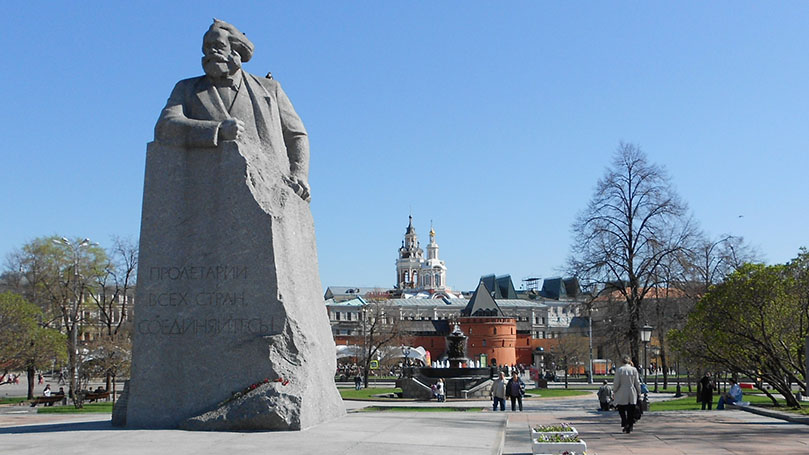
QAs the Communist Party USA is committed to a Marxist perspective, I wonder how it interprets the demise of the USSR and associated socialist states of Eastern Europe. My understanding is that Marxism is built upon “scientific materialism” which postulates historical development. Thus, does the demise of the USSR demonstrate a misapplication of Marxism or a failure of theory. Considerable expense (both material and human) were invested in creating a Marxist state by the USSR. If Communism has a future, how is this apparent failure to be understood?
AThe reasons for the end of Soviet socialism are difficult to address, especially from the the U.S. perspective. Even the Communist Parties of the former Soviet bloc countries have differing opinions. Among the factors to consider are a lack of information technology to facilitate central planning, increasing distance between Party leadership and the working class, and underestimation of the subjective factor—that is, a failure to take into account the desires and aspirations of the masses in building socialism. Of course, all of these things occurred within the context of a sustained campaign of sabotage and economic war by the capitalist powers, with the United States at their head.
But Marxism is a science, so we should think about what we mean by failure in a scientific context. The gap between theory and practice is part of any applied scientific activity: theory is never a perfect reflection of reality and, in the context of practice, new conditions and confounding variables arise. Just as capitalism didn’t appear as a world system overnight, a socialist world will require many experiments, many revolutions, and (as Lenin insisted) much learning from mistakes. Like in a laboratory context, understanding of why an experiment did not yield the expected results is the first step to designing a better trial the next time around. In this sense, the Soviet Union wasn’t a failure. Even leaving aside the massive boost it gave to labor and national liberation movements around the world, it was an enormous step forward in our understanding of revolution and socialist construction.
As we celebrate the one hundredth anniversary of the October Socialist Revolution and the birth of the world’s first socialist superpower, perhaps the best thing we can do is to devote ourselves seriously to figuring out what is needed here and now to unite the working class around a vision of transformative change. We know capitalism can be beaten. The time is now!
But Marxism is a science, so we should think about what we mean by failure in a scientific context. The gap between theory and practice is part of any applied scientific activity: theory is never a perfect reflection of reality and, in the context of practice, new conditions and confounding variables arise. Just as capitalism didn’t appear as a world system overnight, a socialist world will require many experiments, many revolutions, and (as Lenin insisted) much learning from mistakes. Like in a laboratory context, understanding of why an experiment did not yield the expected results is the first step to designing a better trial the next time around. In this sense, the Soviet Union wasn’t a failure. Even leaving aside the massive boost it gave to labor and national liberation movements around the world, it was an enormous step forward in our understanding of revolution and socialist construction.
As we celebrate the one hundredth anniversary of the October Socialist Revolution and the birth of the world’s first socialist superpower, perhaps the best thing we can do is to devote ourselves seriously to figuring out what is needed here and now to unite the working class around a vision of transformative change. We know capitalism can be beaten. The time is now!
Image: in Moscow, a monument to Karl Marx, founder (with Friedrich Engels) of scientific socialism. Image from Wikimedia Commons.



 Join Now
Join Now